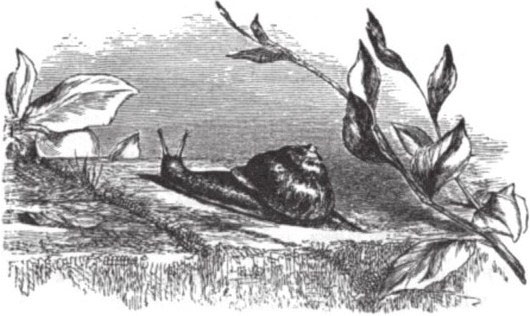





 LESSON 1
LESSON 1

“WHAT ails
 you, lad?” said Dame
you, lad?” said Dame
 Bell to a little boy, who sat near a wall at the back of her house. He had a book in his hand, and tears were in his eyes.
Bell to a little boy, who sat near a wall at the back of her house. He had a book in his hand, and tears were in his eyes.
“We have all got a poem called
Little Jim
to learn,
 ” said the boy, whose name was Tom Blair; “and the one who says it best is to get a prize from the master. But I don’t think I can learn it.”
” said the boy, whose name was Tom Blair; “and the one who says it best is to get a prize from the master. But I don’t think I can learn it.”
“Why not?” said the dame.
“The boys say that I can’t, and that I need not try,” said Tom in a sad tone.
“Don’t mind what the boys say. Let them see that you can learn it,” said his friend.
“But I don’t think I can,” said Tom; “it is so long, and some of the words are so hard.
 I know I need not try for the prize. But I should like to learn the poem as well as I can; for the boys laugh at me, and call me ‘Slow Tom.’ ”
I know I need not try for the prize. But I should like to learn the poem as well as I can; for the boys laugh at me, and call me ‘Slow Tom.’ ”
“Well, dear,” said the dame, in a kind voice, “if you are slow, and can’t help it, try to be ‘slow and sure,’ as they say. Look at that snail on the wall; how slow it is! And yet, if you watch it, you will see it will get to the top in time. So just try to learn a few lines each day, and you may gain
 the prize in the end. And when you are like to lose heart, think of the snail on the wall.”
the prize in the end. And when you are like to lose heart, think of the snail on the wall.”

When Dame Bell had said this, she went on her way. And Tom thought that (though he could not keep up with the boys) he might run a race with the snail. So he resolved
 to try to learn his task,
to try to learn his task,
 by the time the snail got to the top of the wall.
by the time the snail got to the top of the wall.
At last, the day came on which the master was to give the prize, and he called up the boys to repeat the poem.
When five or six had recited,
 it came to Tom’s turn. There was a laugh when he got up; for most of the boys thought he would fail. But he did not miss a word; and his heart was full of joy when the master said, “Well done. Tom Blair!”
it came to Tom’s turn. There was a laugh when he got up; for most of the boys thought he would fail. But he did not miss a word; and his heart was full of joy when the master said, “Well done. Tom Blair!”
When the rest of the class had tried, the master said Tom had done best; and he gave him the prize.
“And now tell me,” said the master, “how you learned the poem so well.”
“Please, sir, it was the snail on the wall that taught me how to do it,” said Tom.
There was a loud laugh when Tom said this. But the master said, “You need not laugh, boys; for we may learn much from such things as snails.—How did the snail teach you, Tom?”
“Please, sir, I saw it crawl up the wall bit by bit. It did not stop, nor turn back, but went on, and on. And I thought I would do the same with my task. So I learned it bit by bit, and did not give up. And by the time the snail had got to the top of the wall, I had learned it all.”
“Well done, Tom!” said the master.—“Now, boys, let us give a good cheer for Tom Blair and the snail on the wall.” And the old house rang with a loud, long cheer. For all were glad that “Slow Tom” had got a prize at last.
Why did Tom cry? What did the other boys call him? What did Dame Bell tell him to watch? What did Tom then make up his mind to do? Who got the prize? When was there a loud laugh? Why did the boys at last give a loud cheer?
lit´-tle po´-em mas´-ter laugh re-peat´ crawl
eyes prize friend thought please learned
